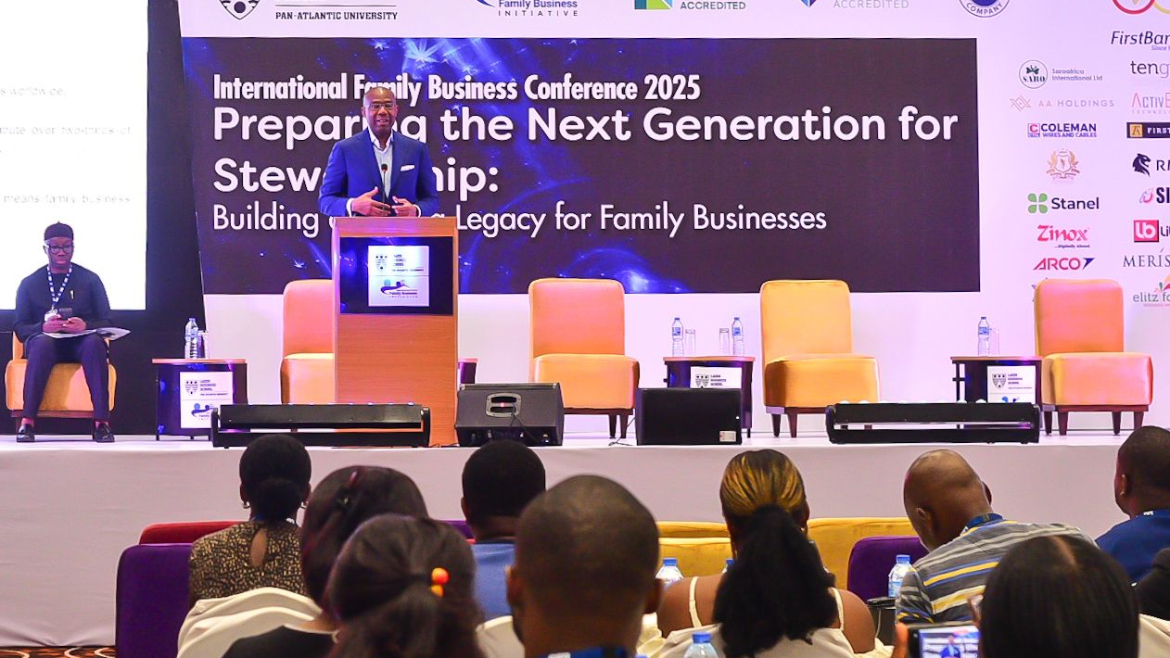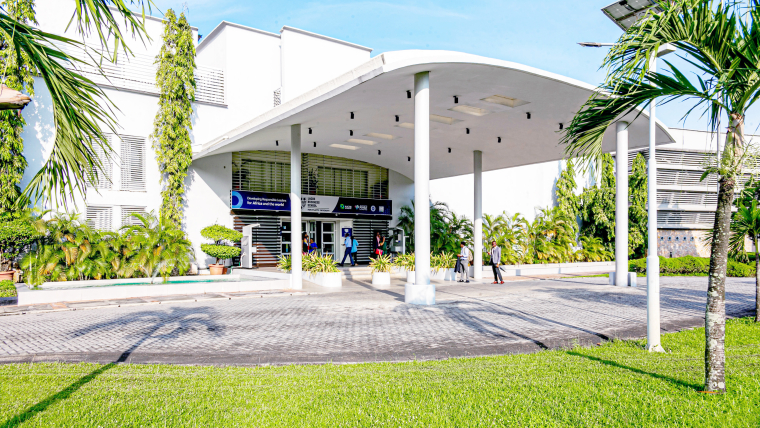The 2025 edition of the annual International Family Business Conference, hosted on March 27, 2025, by the Lagos Business School Family Business Initiative (LBS-FBI), concluded successfully, having provided a pivotal platform for vital dialogue, knowledge sharing, and the strategic mapping of sustainable pathways for African family businesses.
Themed “Preparing the Next Generation for Stewardship: Building a Lasting Legacy for Family Businesses”, the event drew a diverse audience of business leaders, policymakers, and academics. The conversations and presentations underscored the critical imperatives of generational stewardship, succession strategies, and institutionalised governance frameworks as essential pillars for ensuring longevity and relevance in today’s rapidly evolving business landscape.
The conference commenced with inspiring opening remarks from Professor Enase Okonedo, the Vice Chancellor of Pan-Atlantic University, who highlighted the vital role of family businesses in the African economy. This was followed by an address from Professor Olayinka David-West, the Dean of Lagos Business School, who emphasised the LBS-FBI’s dedication to providing cutting-edge research and practical insights to empower family enterprises across the continent. Their remarks highlighted the significant contributions of family-owned businesses to the global economy, stressing the need for proper structure, education and succession planning as crucial determinants of long-term sustainability.
Following the remarks by the Vice-Chancellor and Dean, the master of ceremonies, Dr Franklin Ngwu, Director of the LBS Public Sector Initiative, introduced the Director of the LBS-FBI, Doctor Okey Nwuke, inviting him to speak about the conference and the activities of the Family Business Initiative.
Dr Nwuke spoke at length about the primary goal of the Lagos Business School Family Business Initiative, which is to serve as a platform that supports family business leaders, helping them to secure a legacy that outlasts them for generations to come.
The tone for the day was further set by a compelling keynote address delivered by Aigboje Aig-Imoukhuede, co-founder of Tengen Family Office. Mr Aig-Imoukhuede shared invaluable perspectives on the role individuals and institutions – including family enterprises – play in building a society. “It is easy to fall into the trap of becoming a rent-seeking economy. This must, however, not be mistaken for creating value.” He went on to detail how businesses and institutions with long-term vision lead to compounding growth, benefiting society. “Africa needs to get this right as a matter of urgency,” he said.
The keynote was followed by an illuminating fireside chat and panel discussions, covering themes such as the importance of meritocracy and stewardship in succession planning and legacy building.
Key takeaways from the conference reinforced several essential imperatives for family businesses. Firstly, the conference stressed the importance of leveraging legacy for exponential growth, advocating for building upon established foundations rather than repeatedly starting anew with each succeeding generation. Secondly, the experts emphasised the need to prioritise stewardship over mere ownership, highlighting the necessity of preparing successors with the right skills and mindset, extending beyond familial ties alone.
A crucial point was the adoption of a long-term mindset, encouraging businesses to plan with a visionary 300-year horizon rather than focusing solely on short-term gains. Furthermore, the discussions highlighted the importance of balancing local roots with global competitiveness, urging businesses to foster innovation while diligently preserving their core values. Finally, the conference acknowledged that conflict is inevitable but manageable, stressing the significance of prioritising cohesion by implementing structured governance mechanisms and fostering open communication channels.
The LBS-FBI survey, presented by the Director of the Initiative, Dr Okey Nwuke, further illuminated the pressing need for formalised succession frameworks, robust leadership development initiatives, and inclusive governance models to bridge the potential gaps between founders and their successors effectively. The survey revealed that many family business leaders exhibit a degree of openness to non-family leadership, with 35.1% expressing indifference and 28.1% viewing external leadership as a potential temporary solution while preparing family members.
In response to these critical insights, the LBS-FBI, under the leadership of Dr Nwuke, reiterated the urgent need for family business leaders to accelerate the implementation of formalised succession frameworks, incorporating robust mentorship programmes and well-defined governance systems.
The importance of actively cultivating interest and providing relevant academic and practical business exposure to the next generation of leaders was also strongly emphasised. The conference advocated for a balanced approach that strategically integrates family and external leadership to foster innovation and ensure business continuity.
As Dr Nwuke and the keynote speaker and panellists articulated, there is a collective call to action for all stakeholders – including family business owners, policymakers, and relevant institutions – to support the development and implementation of sustainable succession strategies actively. These strategies are crucial for aligning with the long-term growth objectives of individual businesses and contributing significantly to the broader economic development of Nigeria and the African continent.
The Lagos Business School Family Business Initiative remains steadfast in its commitment to empowering enterprising families through impactful research, proactive advocacy, and targeted capacity-building programmes.




